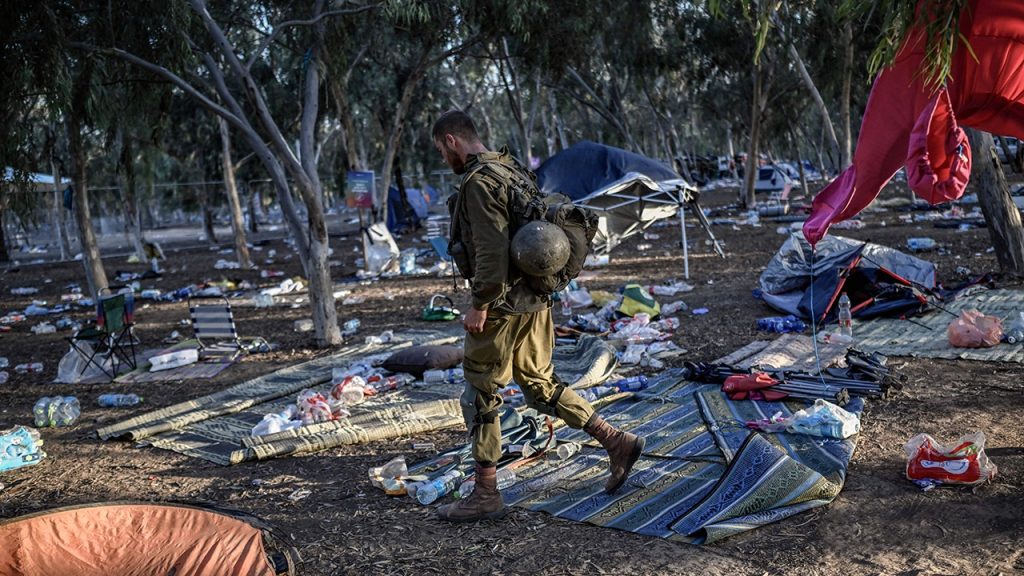The morning of October 7, 2023, etched itself into Israel’s collective memory as a day of unprecedented horror. The Hamas attacks that day transcended the brutality of conventional warfare, targeting the very core of human society: the family. The Idan family of Kibbutz Nahal Oz became a symbol of this targeted destruction, their eldest daughter, Maayan, murdered in front of her family before her father, Tzachi, was abducted. This harrowing scene, broadcast live on social media, forced the nation and the world to bear witness to the unimaginable cruelty unfolding. Concurrently, other families faced similar tragedies. Sixteen-year-old Rotem Matias of Kibbutz Holit hid under his murdered mother’s body, relaying the devastating news to his sisters. In Kfar Aza, Roee Idan was killed shielding his young daughter, Abigail, while his wife, Smadar, was also murdered as their other children watched. These children were left to hide with their mother’s body, uncertain of their younger sister’s fate, who was later abducted to Gaza. These individual tragedies paint a larger picture of systematic violence directed at families, a phenomenon now termed “kinocide.”
This newly coined term, “kinocide,” aims to define the deliberate and systematic destruction of families, recognizing it as a distinct crime against humanity. Dr. Cochav Elkayam-Levy, founder of the Civil Commission on October 7th Crimes Against Women and Children, along with Dr. Michal Gilad and Dr. Ilya Rudyak, co-authored a comprehensive report detailing these atrocities. The report describes kinocide as a “crime without a name for victims without a voice,” emphasizing the perpetrators’ deliberate intention to obliterate the foundational unit of society. The report highlights how Hamas terrorists not only murdered their victims but also reveled in their cruelty, chanting religious slogans and broadcasting their heinous acts on social media, thereby amplifying the terror globally.
The use of social media played a crucial role in the Hamas strategy, disseminating fear and inspiring further acts of violence. Merav Israeli-Amarant, CEO of the Civil Commission, refers to this as the “terror filter,” a term highlighting the calculated use of social media to radicalize and incite others. This deliberate online dissemination of terror extends the victimization beyond the immediate families affected, traumatizing a wider audience and potentially fueling further acts of violence elsewhere. This report is not merely documenting isolated incidents; it unveils a pattern of behavior observed in conflicts worldwide.
The research underpinning the report draws parallels between the October 7 attacks and similar atrocities in conflicts ranging from Argentina and Iraq to Syria, Sierra Leone, and Myanmar. Dr. Elkayam-Levy and her team have connected with survivors of kinocide from various backgrounds, including Yazidis, highlighting the universality of this horrific crime. The aim is to establish kinocide as a recognized international crime, bringing it within the purview of international law and ensuring accountability for perpetrators. The report, produced in collaboration with the Raoul Wallenberg Center for Human Rights, is the culmination of a year-long investigation involving survivor interviews, site visits, and extensive evidence review.
The report emphasizes the moral imperative to act against such atrocities and condemns the silence, denial, and even glorification that often follow such acts. Professor Irwin Cotler, former Minister of Justice of Canada and International Chair of the Raoul Wallenberg Center, underscores the danger of inaction, highlighting how antisemitism, often a precursor to broader atrocities, serves as a warning sign of global evil. He stresses the urgent need for a concerted international effort to address this systematic targeting of families. The report underscores the inadequacy of current international legal frameworks in protecting families from this kind of targeted violence, calling for the development of specific legal instruments to address kinocide.
The report has garnered widespread support from international legal experts and human rights activists, underscoring the global recognition of kinocide’s gravity. However, despite this endorsement, Dr. Elkayam-Levy expresses concern about the international community’s response. Having previously faced denial and resistance from prominent figures within the human rights community regarding her earlier work on sexual violence during the October 7 attacks, she voices her apprehension about the potential for the report to be similarly dismissed or misinterpreted. This concern highlights the politicization of human rights and the challenges in achieving international consensus and action on issues as sensitive and complex as kinocide. The report’s findings and the push for recognition of kinocide as a distinct crime represents a critical step towards holding perpetrators accountable and preventing future occurrences of this devastating form of violence.

